Kia Ceed Sportswagon VS Toyota Yaris – Specs, Efficiency & Price Comparison
Which model is the better choice – the Kia Ceed Sportswagon or the Toyota Yaris? We compare performance (140 HP vs 280 HP), boot capacity (625 L vs 286 L), efficiency (6 L vs 3.80 L), and of course, the price (24000 £ vs 21900 £).
Find out now which car fits your needs better!
The Kia Ceed Sportswagon (Estate) is powered by a Petrol MHEV or Petrol engine and comes with a Automatic or Manuel transmission. In comparison, the Toyota Yaris (Hatchback) features a Full Hybrid or Petrol engine and a Automatic or Manuel gearbox.
When it comes to boot capacity, the Kia Ceed Sportswagon offers 625 L, while the Toyota Yaris provides 286 L – depending on what matters most to you. If you’re looking for more power, you’ll need to decide whether the 140 HP of the Kia Ceed Sportswagon or the 280 HP of the Toyota Yaris suits your needs better.
There are also differences in efficiency: 6 L vs 3.80 L. In terms of price, the Kia Ceed Sportswagon starts at 24000 £, while the Toyota Yaris is available from 21900 £.
Compare all the key specs now and find out which model fits your lifestyle best!
Kia Ceed Sportswagon
The Kia Ceed Sportswagon is a versatile estate car that combines practicality with a touch of elegance. It offers a spacious interior, making it ideal for families or those with an active lifestyle. The vehicle's sleek design and advanced features make it a strong contender in the competitive estate car market.
details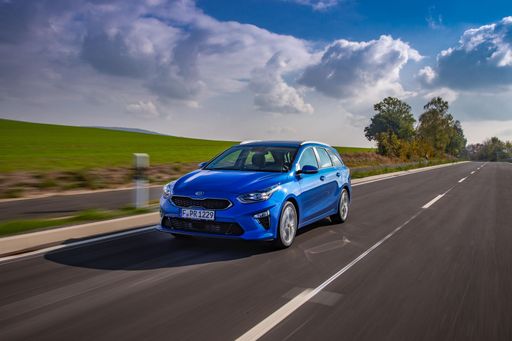 @ press.kia.com
@ press.kia.com
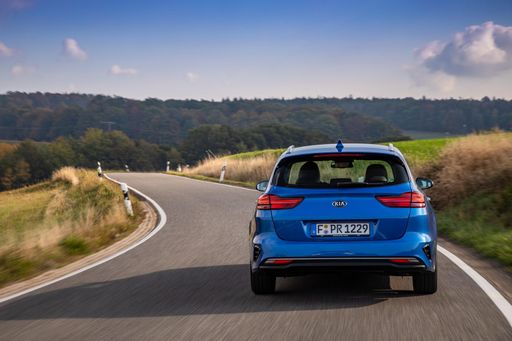 @ press.kia.com
@ press.kia.com
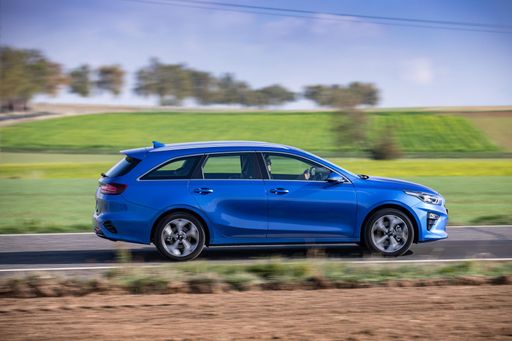 @ press.kia.com
@ press.kia.com
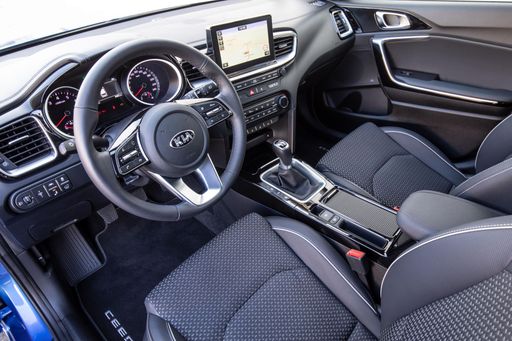 @ press.kia.com
@ press.kia.com
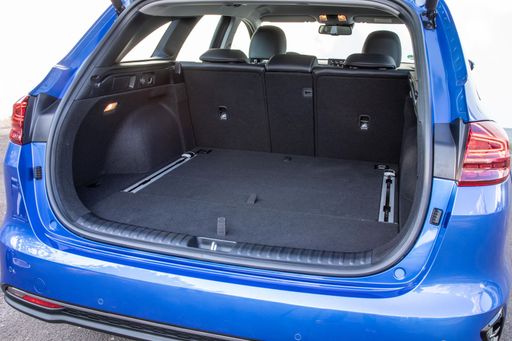 @ press.kia.com
@ press.kia.com
Toyota Yaris
The Toyota Yaris exudes a charming blend of practicality and style, making it an appealing choice for urban drivers. Its compact design allows for easy manoeuvrability in crowded city streets, while the interior offers a surprisingly spacious and comfortable environment. With a focus on fuel efficiency and reliability, the Yaris remains a popular option for those seeking a balance between performance and economy.
details @ Toyota
@ Toyota
 @ Toyota
@ Toyota

|

|
|
|
|
Costs and Consumption |
|
|---|---|
|
Price
24000 - 32600 £
|
Price
21900 - 45000 £
|
|
Consumption L/100km
6 - 6.4 L
|
Consumption L/100km
3.8 - 9.5 L
|
|
Consumption kWh/100km
-
|
Consumption kWh/100km
-
|
|
Electric Range
-
|
Electric Range
-
|
|
Battery Capacity
-
|
Battery Capacity
-
|
|
co2
137 - 146 g/km
|
co2
87 - 215 g/km
|
|
Fuel tank capacity
50 L
|
Fuel tank capacity
36 - 50 L
|
Dimensions and Body |
|
|---|---|
|
Body Type
Estate
|
Body Type
Hatchback
|
|
Seats
5
|
Seats
4 - 5
|
|
Doors
5
|
Doors
3 - 5
|
|
Curb weight
1335 - 1437 kg
|
Curb weight
1090 - 1356 kg
|
|
Trunk capacity
512 - 625 L
|
Trunk capacity
141 - 286 L
|
|
Length
4605 mm
|
Length
3940 - 3995 mm
|
|
Width
1800 mm
|
Width
1745 - 1805 mm
|
|
Height
1422 - 1465 mm
|
Height
1455 - 1500 mm
|
|
Payload
455 - 485 kg
|
Payload
289 - 525 kg
|
Engine and Performance |
|
|---|---|
|
Engine Type
Petrol MHEV, Petrol
|
Engine Type
Full Hybrid, Petrol
|
|
Transmission
Automatic, Manuel
|
Transmission
Automatic, Manuel
|
|
Transmission Detail
Automat. Schaltgetriebe (Doppelkupplung), Schaltgetriebe
|
Transmission Detail
Schaltgetriebe, Automatikgetriebe
|
|
Drive Type
Front-Wheel Drive
|
Drive Type
Front-Wheel Drive, All-Wheel Drive
|
|
Power HP
100 - 140 HP
|
Power HP
116 - 280 HP
|
|
Acceleration 0-100km/h
9.7 - 13.5 s
|
Acceleration 0-100km/h
5.5 - 9.7 s
|
|
Max Speed
178 - 197 km/h
|
Max Speed
175 - 230 km/h
|
|
Torque
172 - 253 Nm
|
Torque
390 Nm
|
|
Number of Cylinders
3 - 4
|
Number of Cylinders
3
|
|
Power kW
74 - 103 kW
|
Power kW
85 - 206 kW
|
|
Engine capacity
998 - 1482 cm3
|
Engine capacity
1490 - 1618 cm3
|
General |
|
|---|---|
|
Model Year
2024
|
Model Year
2024 - 2025
|
|
CO2 Efficiency Class
E
|
CO2 Efficiency Class
B, G
|
|
Brand
Kia
|
Brand
Toyota
|
Kia Ceed Sportswagon
Introducing the Kia Ceed Sportswagon: A Blend of Style and Functionality
The Kia Ceed Sportswagon has entrenched itself as a preferred choice for families and individuals alike, merging dynamic styling with an impressive suite of functionalities. Embodying the attributes of a classic estate car, it offers ample space without compromising on elegance or driving performance.
Innovative Powertrains: Bridging Performance and Efficiency
The Ceed Sportswagon comes equipped with a range of powertrains designed to meet varying customer needs. From traditional petrol options to innovative mild-hybrid and plug-in hybrid systems, the range is catered to deliver on efficiency and power. The plug-in hybrid variant, especially, stands out with its ability to travel up to 50 km purely on electric power, and a remarkable combined fuel consumption of 1.3 L/100 km.
Performance Specifications: Power Meets Precision
Depending on the choice of engine, drivers can experience power outputs ranging from 100 to 141 PS, complemented by torque values between 172 and 265 Nm. Acceleration capabilities vary, with 0-100 km/h achieved in times ranging from 9.7 to 13.5 seconds, providing a performance spectrum to cater to different needs, be it efficiency or spirited driving.
State-of-the-Art Technology and Safety
Kia has packed the Ceed Sportswagon with an array of technological innovations aimed at improving safety and driving experience. From advanced driver-assistance systems to connectivity solutions, the car ensures both the driver and passengers stay safe, informed, and entertained throughout their journey.
Design and Comfort: A Space That Inspires
Aesthetically, the Ceed Sportswagon is both modern and sleek, with a length of up to 4605 mm and a height of up to 1465 mm ensuring a spacious interior. The boot space offers between 437 and 625 litres, catering not only to daily errands but also to road trips. Inside, the seating configuration comfortably accommodates five passengers, making it ideal for families and groups.
Economic Offering: Value for Money
With prices ranging from €26,590 to €42,080, the Ceed Sportswagon presents itself as an economically compelling option without skimping on quality or features. Furthermore, with different equipment lines available, from the elegant Vision to the sport-oriented GT Line, buyers have the flexibility to choose a model that aligns with their lifestyle and preferences.
In Summary: The Complete Package
The Kia Ceed Sportswagon is a testament to Kia's commitment to innovation, quality, and design. Perfectly balancing practicality and performance, it remains a formidable contender in the estate segment, appealing to those who seek a versatile vehicle capable of addressing a multitude of daily driving needs with flair and reliability.
Toyota Yaris
Introducing the Next-Gen Toyota Yaris: A Blend of Innovation and Technology
The Toyota Yaris has long been lauded for its efficiency, reliability, and practicality. As we venture into the 2024 model year, Toyota has upped the ante with the latest versions of this popular hatchback, melding cutting-edge technology with eco-conscious design. Here’s an in-depth look at what makes the current Yaris line-up stand out from the crowd.
Efficient Powertrains: Hybrid and Beyond
Spearheading the technological innovation in the Yaris range is the introduction of various hybrid models. The Yaris offers a 1.5-litre full-hybrid engine, marrying a petrol engine with an electric motor to produce between 116 and 130 PS. This power blend is controlled via a sophisticated CVT-gearbox, optimizing both performance and fuel efficiency, with consumption figures ranging from an impressive 3.8 to 4.2 litres per 100 km.
For those seeking pure performance, the GR Yaris variants provide a turbocharged 1.6-litre engine capable of producing 280 PS. This power is delivered via a choice of manual or automatic transmission, giving drivers the tactile involvement or convenience they desire.
Design that Fulfils and Inspires
The Yaris hasn't forgotten its roots as a compact, city-friendly hatchback, measuring between 3,940 and 3,995 mm in length. With its bold front grille, sleek lines, and a choice of striking colours, it's a car that turns heads while remaining perfectly suited for urban environments.
The interior is equally impressive, designed with a focus on driver convenience and comfort. Depending on the variant, Yaris can offer generous cargo space of up to 286 litres, making it a perfect companion for everyday tasks or weekend escapes.
Technological Integration: The Smart Choice
Toyota's approach goes beyond just improving engine technology; the Yaris is packed with innovative features aimed at enhancing the driving experience. It boasts a suite of advanced safety systems such as lane departure alert, pre-collision system, and adaptive cruise control, ensuring peace of mind on the road.
The infotainment system in the Yaris is designed to keep you connected, offering seamless smartphone integration, a user-friendly interface, and an intuitive navigation system, ensuring that you're always informed and entertained.
The Cost of Innovation
Owning a Yaris is not just about impressive technology; it's also about making economic sense. With a price range between €25,500 and €49,990, and monthly costs spanning from €748 to €1,513, it offers a broad spectrum to suit different budget needs.
Concerned about emissions? You can rest easy knowing that the Yaris boasts a CO2 efficiency class ranging from B to G, thanks to its low emissions output of between 87 to 215 g/km.
Conclusion: The Toyota Yaris Drives the Future
The Toyota Yaris continues to be a strong contender in the compact car segment, pushing boundaries with its innovative full-hybrid systems and performance-oriented GR models. It's a remarkable blend of design, technology, and economy, ensuring it remains a top choice for drivers who demand more from their hatchbacks.
Whether you're seeking the efficiency of a hybrid or the thrill of the GR Yaris, there's a model tailored to your unique driving needs in Toyota's latest Yaris lineup.
The prices and data displayed are estimates based on German list prices and may vary by country. This information is not legally binding.
